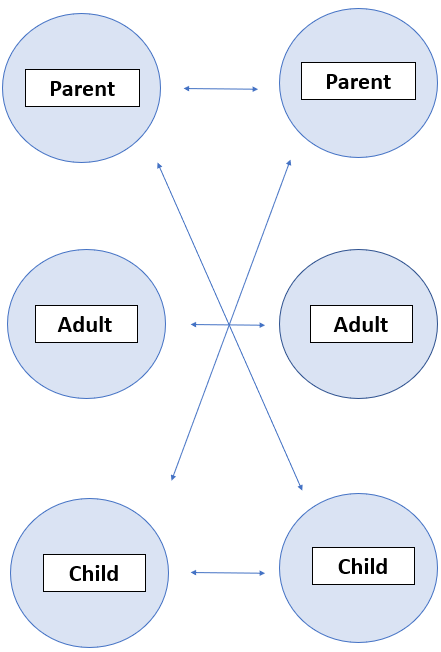The analysis of conversations; theory developed by psychologist Eric Berne.
This model can be useful when we are considering how we communicate with others. The theory suggests that whenever we are communicating (the transaction) we do it in the 'ego state' of either a parent, adult, or child. Each 'ego state' can be identified through a combination of our thoughts, feelings and behaviour. Behaviour is reflected through body language, posture, tone of voice, gestures and vocabulary.
Unconsciously we can create or respond to certain situations as a parent or child. But the theory suggests that in order to be successful in holding conversations we should be in the adult state and if we drift into either parent or child, we need to be able to recognise our behaviour and pull yourself back into the adult state.
A state in which people behave, feel and think in response to an unconscious mimicking of how their parental figures acted, or how they interpreted their actions. A person in authority.
Nurturing, helpful and protective, but often tries to find solutions for others, limiting their autonomy. Can then be over critical, dominant or controlling.
A state where you make logical predictions and decisions with little intervention from your emotions. Emotionally intelligent approach to conversations.
While a person is in the adult state they are directed towards objective appraisals of reality and problem solving. They are logical and respond to the here and now.
A state in which people behave, feel and think as they did in childhood. The child is the source of emotive responses often spontaneous or emotional outbursts in response to a situation that they disagree with.
Often withdraw or rebel in difficult situations.

Often the state which you adopt will affect how others behave in their interactions with you. It's always pertinent to review your behaviour and conversational style to ensure that you remain in the adult state in your communications.
Awareness of the ego states allows you to self-reflect your communication and behaviour.
Reflection

Notifications